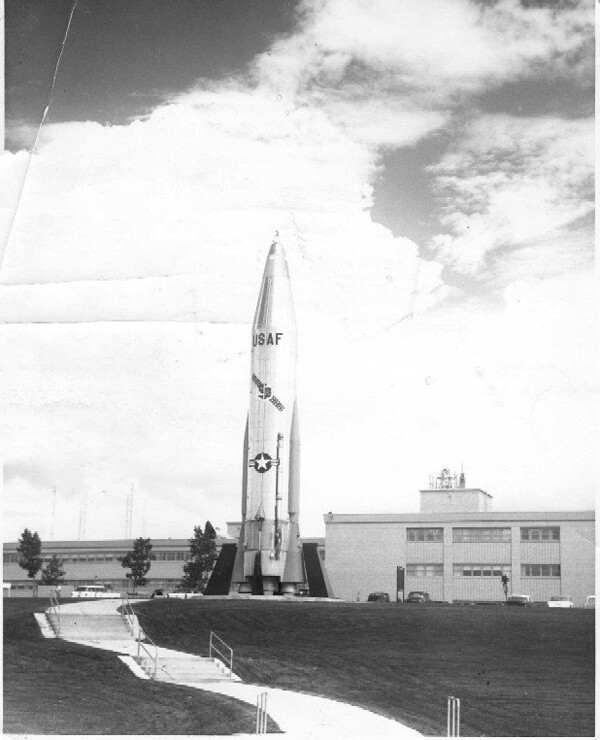Nuclear Retirees v. Active Duty Armageddon

Call it a clash of nuclear titans — but not the crude shouting-match between Don Trump and North Korea’s Kim Jong-un. It’s an “armed struggle” is between retired Pentagon big wigs and current US war planners and weapons contractors.
While the Air Force thunders ahead with plans to design, produce and deploy a replacement for long-range, land-based nuclear-armed missiles, a string of retired military leaders have again called it useless, dangerous and exorbitantly expensive. (See: “Get rid of ICBMs,” in the Jan. 21, 2016 Reader)
Reuters correspondent Scot Paltro reported Nov. 22, “Nuclear strategists call for bold move: scrap ICBM arsenal,” and cited former Secretaries of Defense William Perry and Leon Panetta, former missile launch officer Bruce Blair, former Vice Chair of the Joint Chiefs of Staff Gen. James Cartwright, and current Secretary of Defense James Mattis. (Gen. Mattis recently had a change of heart and now supports the replacement plan.)
Mr. Perry, who was the Secretary of Defense from 1994 to 1997, and retired US Marine Corps General James Cartwright, who was Vice Chairman of the Joint Chiefs of Staff from 2007 to 2011, penned a commentary in the Washington Post Nov. 16 calling for the permanent elimination of long-range land-based missiles or ICBMs. (“Spending less on nuclear weapons could actually make us safer”)
The thought of thinning their rich gravy train must have set off alarm bells in the executive suites at Boeing Corp. and Northrop Grumman, Inc. The two weapons profiteers are vying for the $130 billion “cost plus” contract to build a brand new, land-based ICBM (to replace the 450 Minuteman III missiles currently kept on hair-trigger alert in underground launch sites across the Great Plains).
Last summer, the Air Force awarded the two upstanding, public-spirited companies over $325 million each to put together counter proposals for the so-called “Ground-Based Strategic Deterrent” — what you know as the nuclear-armed “Minuteman” rocket that can fly 13,000 miles. When the contractor’s competition was announced, company executives gave the Washington Examiner a manure spreader full of corporate smooth talk.
Wes Bush, Northrop Grumman’s chairman, CEO and president, said, “We look forward to the opportunity to provide the nation with a modern strategic deterrent system that is secure, resilient and affordable.” He and Boeing spokesperson Jerry Drelling — who said “We are honored … to provide an affordable, low-risk intercontinental ballistic missile (ICBM) system solution” — must have anticipated the push back from the critics, because they kept repeating the words “affordable,” “secure” and “low-risk.”
Mr. Perry and Gen. Cartwright focused on the reckless endangerment caused by land-based missiles. They are easy stationary targets, they argue, and historically are the most likely among nuclear weapons to cause accidents. Using alarmingly harsh language, the two wrote, “There are serious concerns about accidental war that are inherent to ICBMs, which certainly would be the first targets of any surprise attack and cannot be recalled should they be launched in response to what turns out to be a false alarm.”
Perry and Cartwright seemed to be joisting with Boeing’s Director of Strategic Deterrence Systems, Frank McCall, who reminded the Examiner that since 1961, the US Air Force “has relied on our technologies for a safe, secure and reliable ICBM.”
Not so, reported the retired military heavy-weights. “Today, the greatest danger is not a Russian bolt but a US blunder — that we might accidentally stumble into nuclear war,” wrote Perry and Cartwright. “As we make decisions about which weapons to buy, we should use this simple rule: If a nuclear weapon increases the risk of accidental war and is not needed to deter an intentional attack, we should not build it.”
Hitting back against the military contractors’ flippant references to “affordability,” Perry and Cartwright used language that could have been taken straight from the pages of Nuclear Heartland, Nukewatch’s 2015 book about the land-based missiles. They argue that the United States “should cancel plans to replace its ground-based ICBMs, which would save $149 billion.”
“Certain nuclear weapons,” the two concluded, “such as the cruise missile and the ICBM, carry higher risks of accidental war that, fortunately, we no longer need to bear. We are safer without these expensive weapons, and it would be foolish to replace them.”
P.S. This label “unsafe, foolish and expensive” goes for all the new nuclear weapons inside the Pentagon’s $1.7 trillion production chain rebuild now underway. Yet, plans for a new nuclear-armed submarine, a new heavy bomber, and a new H-bomb for Europe somehow win Perry’s and Cartwright’s approval. It seems that nuclear madness doesn’t completely clear up upon retirement.